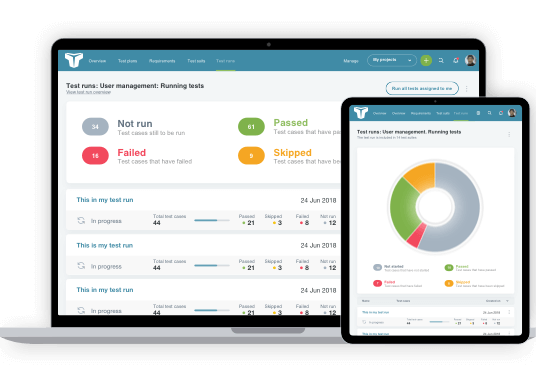Welcome to our test case tutorial! Test cases are an essential asset for conducting QA testing, and we’re excited you’ve decided to learn more about this topic.
Test cases tell the tester what to test, how to check it, and what the expected results are once completing the test steps. Well-written test cases enable anyone to step into the tester role and determine whether or not a piece of software is functioning satisfactory. Test cases also ensure proper test coverage of the application under test.

Writing good test cases takes practice. In this tutorial, you’ll learn some of the basics of test cases, including how to write them, how to keep them clean and organized, different types of test cases, and more.
To get started, we recommend starting with the first section of this test case tutorial, “What is a test case?”.
Let’s get started with the Test Case Tutorial
2. How to Write Test Cases for Software (with a sample)
Now that you have an understanding of what a test case is, it’s time to start practicing writing your test cases. In this section of the test case tutorial, we will walk you through how to write excellent test cases, provide an example test case, and recommend tools for writing and organizing your test cases.
4. Writing Test Cases from User Stories & Acceptance Criteria
Writing test cases requires having access to existing information or documentation about the software. It’s not uncommon for testers to write test cases based on information provided in user stories. In this part of the test case tutorial, you’ll learn how to transform a user story into a test case.
5. Positive vs Negative vs Destructive Test Cases
Testing involves more than ensuring the software does what it’s supposed to do. It’s equally important to verify the software doesn’t do certain things and to understand at what point does the software break? In this section of the test case tutorial, we look at the three main types of test cases: positive, negative, and destructive.
6. Agile Test Case Management - Keeping Your Test Cases Lean
Test cases can build up over time. As software requirements change, or parts of the application get deprecated, this results in many test cases becoming obsolete. Just like it’s important to groom a backlog, it’s essential to maintain your library of test cases. This part of the test case tutorial provides tips and best practices for keeping your test cases up to date, clean, and organized.
Contributing writers
-
Jake Bartlett lives and works in Nashville, Tennessee. He has a background in software testing, customer support, and project management.
-
Brian is a QA Engineer with over 20 years of broad software testing experience to draw on as a blog contributor for TestLodge.








